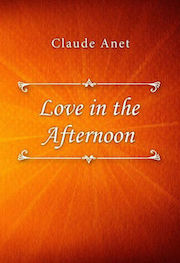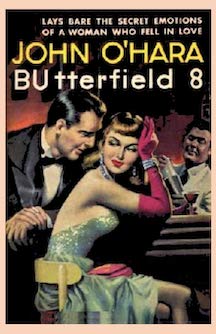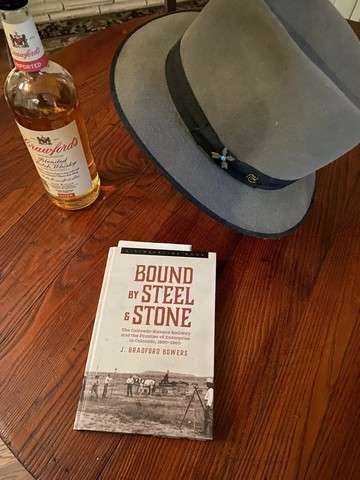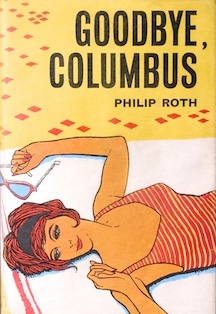Alex Oviatt
Practically Family
- Messages
- 553
- Location
- Pasadena, CA
Currently reading Larson's The Splendid and the Vile, an interesting look at Churchill.
Currently reading Larson's The Splendid and the Vile, an interesting look at Churchill.
Currently reading Larson's The Splendid and the Vile, an interesting look at Churchill.

Love in the Afternoon by Claude Anet originally published in France in 1924
"They persisted in proving to themselves that they were not in love, that between them stood nothing but an episode in which pleasure was the beginning and the end." - Claude Anet, Love in the Afternoon
"The lies we tell ourselves are the most subtle of all lies." - Lewis B. Smedes
Neither book nor film have I acquainted-will read Anet but cannot bear watching Audrey and Cooper-
it's like Sabrina with her and Bogie. Badly cast too long the tooth... (A college wine & cheese party
fondly recall, Audrey's love of her life was William Holden, trouwaz he had had a Vaze, no kids.)
The late American author James Salter penned a splendid spin christened A Sport and a Pastime
which I hardly had begun before I lateralled it over to a gal pal for her feminist Hyde Park book club's
salacious consider in a moment of fiendish vicarious delight. This was during the Kavanaugh hearings
when I tried explaining nuanced cross examination to a hard core feminist physician and physicist,
failed utterly over lunch by critique or crook to prove predonderant evidentiary lack; so I bade toss
this literary Molotov cocktail with an excellent restaurant recommendation for her post Opera girls
night out that weekend. Salter's an intellectual panty twister, caught the feminist gals off guard
with his lecherous narrative. They loved it.
You sold me on it. I just ordered a copy of "A Sport and a Pastime."

 John Lofgren Monkey Boots Shinki Horsebuttt - $1,136 The classic monkey boot silhouette in an incredibly rich Shinki russet horse leather.
John Lofgren Monkey Boots Shinki Horsebuttt - $1,136 The classic monkey boot silhouette in an incredibly rich Shinki russet horse leather.  Grant Stone Diesel Boot Dark Olive Chromexcel - $395 Goodyear welted, Horween Chromexcel, classic good looks.
Grant Stone Diesel Boot Dark Olive Chromexcel - $395 Goodyear welted, Horween Chromexcel, classic good looks.  Schott 568 Vandals Jacket - $1,250 The classic Perfecto motorcycle jacket, in a very special limited-edition Schott double rider style.
Schott 568 Vandals Jacket - $1,250 The classic Perfecto motorcycle jacket, in a very special limited-edition Schott double rider style. 

Just received The Iliad this week… hopefully I will start reading it tomorrow…
View attachment 369497
Goodbye, Columbus by Philip Roth, published in 1959
Philip Roth is an author whose writing talents I respect, but whose politics and philosophical views usually turn me off so much that I'm annoyed reading his books. Hence, I've read only four or five Roth novels over the years despite his double-digit output.
However, having recently caught a blurb about Goodbye, Columbus being his first novel, I was intrigued as it's interesting to read a famous novelist at the beginning of his or her career. Plus, I guessed (fortunately, correctly) that the politics would be light in this one.
In Goodbye, Columbus, Neil Klugman is a young Jewish man who graduated from Rutgers Newark (relevant NJ factoid: Rutgers Newark is an orphaned-sister college within Rutgers University) who lives with his aunt and uncle in a small apartment in lower-middle-class Newark, NJ. He meets and begins dating very upper-middle-class Jewish Radcliffe college student Brenda Patimkin of the pretty, spacious and wealthy nearby suburb of Short Hills.
Goodbye, Columbus is an inside-Jewish baseball story, but it took me a bit to realize this as I was waiting for the typical Roth interfaith-sexual-fascination tic to appear. But nope, this is all about a poor Jewish boy dating a rich Jewish girl, yet, even intra-faith, the cultural divide is pretty darn wide.
The attraction between these two kids from different worlds is the usual: he/she is intriguing because he/she is not like the other boys/girls in his/her world. For Neil, the fun is coming to Brenda's much-more-comfortable locale of country clubs, big houses, new cars, pools, private golf courses, etc., as her family welcomes him despite their reservations. For her, she gets to "rebel" safely by bringing a not-too-dangerous "outsider" inside her protected sphere.
While Brenda takes all the expensive stuff for granted, Neil is amazed at seeing a world of extra and well-stocked basement refrigerators, in-house bars with every liquor conceivable, sporting equipment casually lying around and money for whatever comes up.
In what was a big deal in that day, Neil and Brenda quickly become sexually active with Neil sneaking into Brenda's room each night when he stays over. In another ahead-of-its-time move, Brenda is the more aggressive one sexually. But the story is less about their sexual relationship than how they can bridge their two oddly distant worlds.
While they believe they are in love and try, somewhat, to figure out how to keep the relationship going after the summer when Brenda will be back at Radcliffe and Neil back at his dead-end job at the Newark public library, we know before they do (spoiler alert) that this was a fling, not a love affair for the ages.
Rumbling in the background of the Neil-Brenda drama is the gulf between the "successful" Jews of Short Hills and the struggling ones of Newark. Usually, the struggling ones would be presented as heroic and morally bound by older values not compatible with success in capitalist America; whereas, the successful ones would be presented as sellouts for money and acceptance.
Yet here, most of the Jews are presented as "gonifs" (small cheats or schemers) who all want to succeed, but some (the Short Hills ones) are just better at it than the others (the Newark ones).
It's an unflattering picture all around that, my guess, was only able to be shown because author Roth is Jewish. Having worked in New York City for over three decades, it doesn't gel at all with my experience, which is that all groups have their good people and "gonifs." However, this young author didn't flinch from expressing his scathing view of his own people.
Roth, who one can't help feeling identified with somewhat-autobiographical Neil, also didn't flinch at limning an unlikable lead character. Neil has a chip on his shoulder about everything Newark, constantly goads Brenda and her family about their wealth and, in general, does small selfish things, yet you don't outright hate the guy. Not that Brenda is any prize herself, as she's basically spoiled and a, umm, what's that word that starts with the letter B and rhymes with witch?
Kudos to, at the time, newbie author Roth for keeping the reader engaged in this short novel with two unlikable lead characters as that's not easy to do. So it is no surprise Goodbye, Columbus is an award winning book, showing that, right out of the shoot, Roth's talent was recognized.
I am reading The 7 Habits of Highly Effective People.
I need it to work LegalFiles